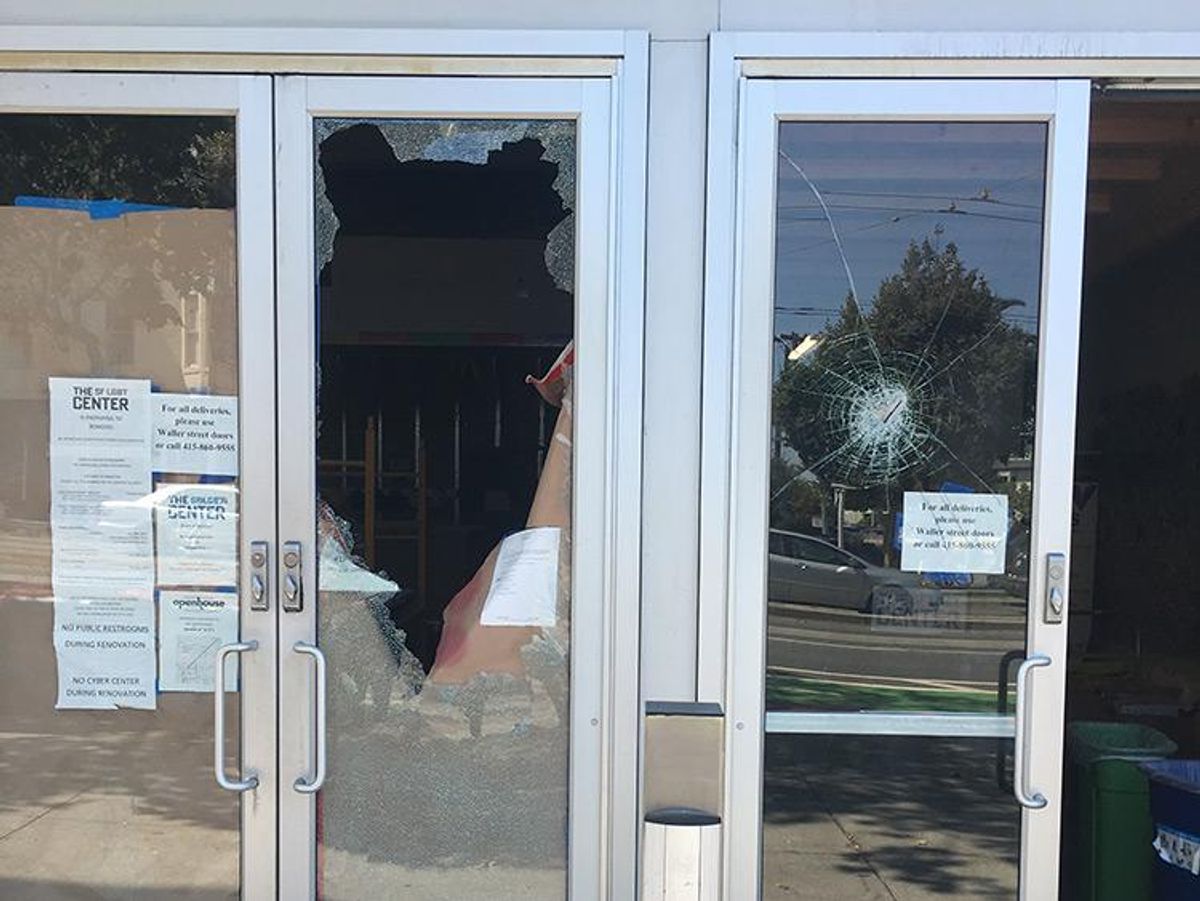On August 11 an individual shouting homophobic slurs attacked our building, the San Francisco LGBT Center, with a metal pipe, shattering two windows and a glass door. The person was quickly apprehended, and the incident is currently being investigated as a hate crime.
The attack left me and many staffers in shock. I was angry and also sad. It was a stark reminder that even in San Francisco, homophobia and violence continue to be pervasive in the LGBTQ community.
What happened that day reminded me of the importance of the center's work and why we must continue to do it, especially around violence prevention.
While the LGBTQ community has made historic strides in social acceptance, experiences like this are still commonplace. We hear of extreme examples like the horrific massacre at Pulse nightclub in Orlando, but rarely about the murders of transgender women across the country (19 to date this year), street harassment, and the daily assaults on our dignity -- all of which demonstrates that violence is still a fact of life for our community.
We all deserve to live a life free from violence, but the reality is different for most of us.
An assessment on LGBTQ violence that we spearheaded last year, showed that the vast majority of LGBTQ people living in San Francisco have experienced at least one significant experience of violence: 81 percent of us have experienced harassment, 68 percent have been physically assaulted, and 48 percent have been sexually assaulted. Many in our community -- including transgender people, people of color, and those experiencing poverty -- face disproportionately higher levels of violence.
As a result of the findings, the Violence Prevention Collaborative was formed.
The Violence Prevention Collaborative is a one-year pilot program involving five San Francisco nonprofits that serve the LGBTQ community and survivors of violence. The collaborative focuses on building a stronger network of safe spaces and community-based resources for LGBTQ people who have experienced violence.
The collaborative is the type of program that makes our work so vital to the community. Other center programs, services, and resources bring over 100,000 people come to us every year. We help people find jobs, advance their career, guide them through their housing and financial challenges, and connect them to critical resources. Our youth program helps clients get off the street and brings them back into the community.
The center, as a physical place, is also more important now than ever because safe queer and trans spaces are disappearing in San Francisco -- we have lost dozens of LGBT spaces in the span of two years due to the affordability crisis.
Homophobia certainly played a central role in the violence perpetrated against the center, but so did a number of inescapable issues plaguing San Francisco.
The housing crisis, access to mental and health care, police violence, substance abuse problems, and the widening gap between the haves and those being displaced have deeply impacted the most vulnerable members of our society. We need to do something about these problems.
From the center's very beginning, its mission has been to support and empower those in need -- whoever they are -- and connect them to the critical resources they need to thrive.
The center is currently undergoing renovations, which will be finished in early 2017. The building rededication next year will coincide with our 15th anniversary. The new facilities will allow all of our programs and services to continue growing, and provide a home for future generations of LGBTQ people.
We are excited about our future and building on our successes.
Each time our community faces adversity, we emerge stronger and more committed to realize equality and fairness not only for every member of our community, but also for every person who is experiencing injustice.
A few broken windows won't stop us from continuing to serve our community with pride.
 REBECCA ROLFE is the executive director of the San Francisco LGBT Center.
REBECCA ROLFE is the executive director of the San Francisco LGBT Center.


 REBECCA ROLFE is the executive director of the San Francisco LGBT Center.
REBECCA ROLFE is the executive director of the San Francisco LGBT Center. 















































































Here's our dream all-queer cast for 'The White Lotus' season 4